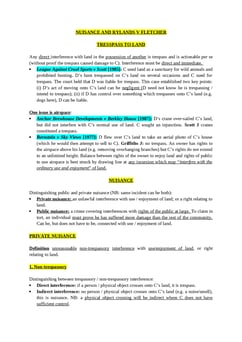Nettleship v Weston [1971] 2 QB 691
Judgement for the case Nettleship v Weston
Table Of Contents
KEY POINTS
In the context of motor car driving, the law establishes a uniform standard of care that all drivers, including learner drivers, must adhere to when it comes to the safety of all passengers in the car, which includes the driving instructor.
FACTS
Mrs. Weston wanted to learn to drive and asked her friend, Mr. Nettleship, for lessons. She and her spouse assured him they had comprehensive insurance covering him as a passenger during lessons, and he agreed to teach her.
During her third lesson, while she was driving, Mrs. Weston panicked and crashed into a lamp post, injuring Mr. Nettleship. He claimed damages for negligence, but the judge dismissed the claim, stating that Mrs. Weston had fulfilled her duty to do her best during the lesson, and he did not find her negligent.
JUDGEMENT
Appeal allowed. The accident was the shared responsibility of both the learner driver and the instructor.
COMMENTARY
This decision established a significant legal precedent by emphasizing that a person's status as a learner driver does not lower the duty of care they owe to their instructor or other passengers.
In essence, the court ruled that negligence is not a subjective standard based on the driver's experience but an objective standard based on what a reasonable person would do in similar circumstances.
ORIGINAL ANALYSIS
CA held that by checking on his position under the car insurance before agreeing to give the lessons, Plaintiff had shown expressly that he did not consent to run the risk of injury which might occur through the learner's known lack of skill, so that she could not rely on the defence of volenti non fit injuria to bar his claim.
Lord Denning MR
If the knowledge of the passenger [ that the driver he was teaching was a bad driver] were held to take away the duty of care, it would mean that we would once again be applying the maxim: Scienti non fit injuria.
The defence can only apply where there is:
An agreement to waive any claim for negligence. The plaintiff must agree, expressly or impliedly, to waive any claim for any injury that may befall him due to the lack of reasonable care by the defendant: or, more accurately, due to the failure of the defendant to measure up to the standard of care that the law requires of him.
That was not the case here.
For Further Study on Nettleship v Weston
Need instant answers? Our AI exam tutor is here to help.
Ask questions 🙋 Get answers 📔 It's simple 👁️👄👁️
Our AI is educated by the highest scoring students across all subjects and schools. Join hundreds of your peers today.
Get StartedSimilar Cases
Related Product Samples
These product samples contain the same concepts we cover in this case.
| Tort Law | Negligence Duty Of Care Notes (35 pages) |

 Since 2010, Oxbridge Notes has been a trusted education marketplace, supplying high-quality materials from top achievers at universities like Oxford, Cambridge, LSE, Harvard, and Yale.
Since 2010, Oxbridge Notes has been a trusted education marketplace, supplying high-quality materials from top achievers at universities like Oxford, Cambridge, LSE, Harvard, and Yale.